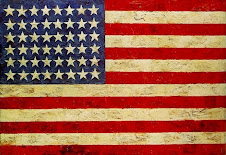
Recent class discussions and the evening news keep alluding to the decline in value of the US dollar and other marks of economic recession which may be signaling a crisis. Our upcoming study of the Stock Market Crash of 1929 and the Great Depression will certainly lead us into discussions on the question which you will focus on for this week's blog: Is the US headed for another Great Depression?
Directions:
1. Read any two of the following articles that offer varied perspectives on this weeks topic:
B) "A New Great Depression? It's Different This Time", by Michael A. Hiltzik.
LA Times, March 20, 2008.
http://www.latimes.com/news/printedition/front/la-fi-depression20mar20,1,1097237.story
C)
"Are We Headed for Another Great Depression: Talks with Elaine Meinel Supkis" by MikeWhitney. Dissident Voice Newsletter, May 12th, 2007.
http://www.dissidentvoice.org/2007/05/are-we-headed-for-another-great-depression/then
2) Summarize the key points of both articles and state your opinion on the framing question posted for this assignment, are we headed for another Great Depression? Be sure to refer from facts from the article and class to support your response.
Posts must be at least 200 words and include a response to at least one peer.
Due Friday 3/28

